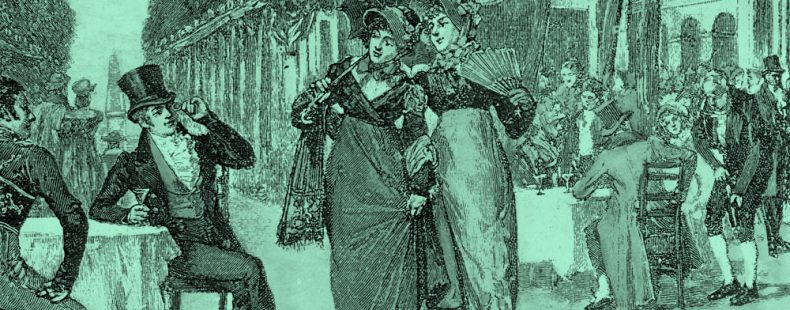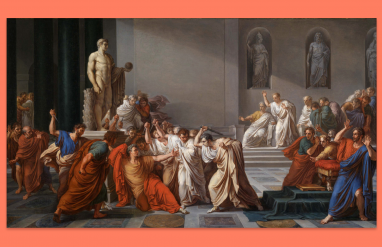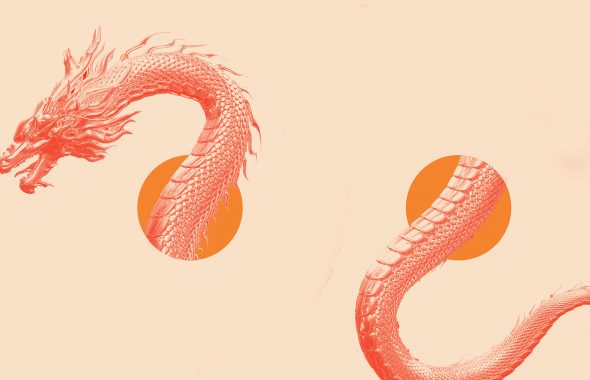This spring may be a bit steamier than usual, thanks to the return of the hit Netflix show Bridgerton. This Regency romance with a modern twist took audiences by storm last year with its unpredictable plot, historical setting, and very attractive cast of characters. If you watched the first season last year or you’re catching up now, you may find yourself wondering what some of the historical language in the show actually means. Bridgerton, like a lot of period dramas, is not 100% historically accurate, but the language, costumes, and customs on display do have real roots in the past. Here are 16 words you need to know to get ready for season two and become fluent in the language of Bridgerton.
viscount
You’ve likely heard of a count, but after catching up on Bridgerton, you may be wondering: what in the world is a viscount? We’ve got your back. A viscount is “a nobleman next below an earl or count and next above a baron.” It’s a hereditary title that was first recorded in English in the mid to late 1300s within a peerage or nobility system. You could think of it as a “vice count,” since it’s believed to have come from the equivalent in Old French, visconte.
rake
In the world of Regency romance, a rake is not a gardening tool. It’s an insult dating back to the 1600s that means “a dissolute or immoral person, especially a man who indulges in vices or lacks sexual restraint.” It comes from rakehell, an alteration of the Middle English rakel, meaning “rash, rough, coarse, hasty.” Rakes are the “bad boys” of the Bridgerton era. Of course, on TV, that may be a part of their appeal.
promenade
In 2022, you might make a relationship Instagram official. In the 1800s, you were likely to promenade. Promenade is a verb that means “to conduct or display in or as if in a promenade; parade.” This might mean taking a public walk with the object of your affection to make your courtship known, as Daphne and the Duke of Hastings do in season one. Fun fact: the word prom comes directly from promenade.
duke
You’ve likely heard the title of duke, but what do they actually do? A duke, in historical British society, is “a nobleman holding the highest hereditary title outside the royal family, ranking immediately below a prince and above a marquis.” Dukes hold the highest social rank in British peerage, with the female equivalent being a duchess. This term, which dates back to the 1100s, comes from the Medieval Latin dux, or “hereditary ruler of a small state.”
What’s the difference between a duke and a prince?
countenance
Countenance sounds like another fancy title, but it actually refers to “appearance, especially the look or expression of the face.” For example: The duke could scarcely hide his intrigue behind his serene countenance.
Historically, countenance is related to control and the idea of keeping one’s cool, especially in polite society. Though it refers more generally to one’s facial expression today, countenance comes from the Old French contenance, or “behavior, bearing.” The Old French noun comes from the Latin noun continentia “self-control, restraint.”
coming out
In the 19th century, coming out meant something different than it does today. It was customary for young women at the time to come out, or have “a debut into society, especially a formal debut by a debutante.” This typically involved a special ball or series or balls and parties. Essentially, this debut was a signal to the community that the woman was ready for courtship and marriage.
ton
When you hear talk of “the ton” on Bridgerton, they aren’t mispronouncing the word town. Ton means “fashionable society,” particularly high class society during the Regency era. The word comes from le bon ton, a French phrase meaning “good or elegant form or style.” Members of the ton were generally upper class, wealthy, and respected.
Regency
Bridgerton is an example of a regency romance, a genre of historical romance set during the Regency era. Regency, in this sense, means “characteristic of or relating to the Regency periods in France or the United Kingdom or to the styles of architecture, furniture, art, literature, etc, produced in them.” This time period is generally believed to fall between 1811–1820.
season
The season is a big deal to the fictional characters in Bridgerton, but they aren’t necessarily referring to winter, spring, summer, or fall. More likely, they are referring to the social season, or “a period of fashionable social events in a particular place.” The season was a time for coming out, social events, and marriages. It’s thought to have taken place from early spring until around Christmas time.
sire
Today, sire is a respectful, if a little old-fashioned, form of address. But when the word is used in Bridgerton, it’s more likely meant in the archaic sense: “to beget; procreate as the father.” Men at this time were expected to “sire an heir” to secure their lineage and place in high society.
modiste
Any lady fit for a Bridgerton-style ball must have a modiste on hand. That’s an older term for “a female maker of or dealer in women’s fashionable attire.” As you may have guessed, English speakers borrowed the word modiste from French. In the Regency era, a modiste could not only make clothes, but also advise women on what was fashionable and appropriate for various events.
Dress up your words with these words from fashion.
courses
Even Regency-era women had to worry about Aunt Flo crashing the party. Courses is an older, fancier way of saying “menses,” or a period. In the Bridgerton time period, the presence or absence of someone’s period was essentially the only way of determining whether or not she could bear children or was pregnant, so much is made of courses by the women on the show.
high in the instep
If you wanted to drop a sick burn on someone in the 1800s, you might say they were high in the instep. The instep is “the arched upper surface of the human foot between the toes and the ankle,” and accusing someone of being high in the instep was a way of saying they’re conceited, arrogant, or haughty.
virtue
In modern times, we think of virtue as personal morals or values. Historically, the term was mostly about sex. Virtue meant “chastity; virginity”, especially in reference to women and girls. It was considered of the utmost importance for a woman to “keep her virtue” until marriage. The word entered English in the late 1100s, and it can be traced to the Latin virtūs, or “manliness.”
trousseau
Bridgerton is part romance and part historical fashion education. A trousseau is “an outfit of clothing, household linen, etc., for a bride.” The word comes from Old French trusse, literally “a little bundle.” In some instances, a trousseau may also have included jewelry and other items and been a part of a woman’s dowry. While dowries aren’t a part of modern wedding traditions, some brides still prepare a trousseau of things they intend to wear throughout their wedding festivities.
swoon
Now that your vocabulary is ready for the next season of Bridgerton, it’s time to let the swooning commence. To swoon means “to enter a state of hysterical rapture or ecstasy.” Whether you have a favorite duke, duchess, viscount, or modiste, chances are you’ll be acting out this term at least a few times when they appear on screen. Keep in mind that swoon comes from the Middle English swonen, or “to faint.” You may want to binge-watch carefully.
Prepare for the social season with a quiz
Are you ready to come out as a Regency period language artiste? You can sharpen your skills by reviewing our Bridgerton word list, with features like flashcards and learning quizzes to help you rise in the wordy ranks in no time. You can also go straight to our quiz on these words, and prove you have a swoonworthy vocabulary.













